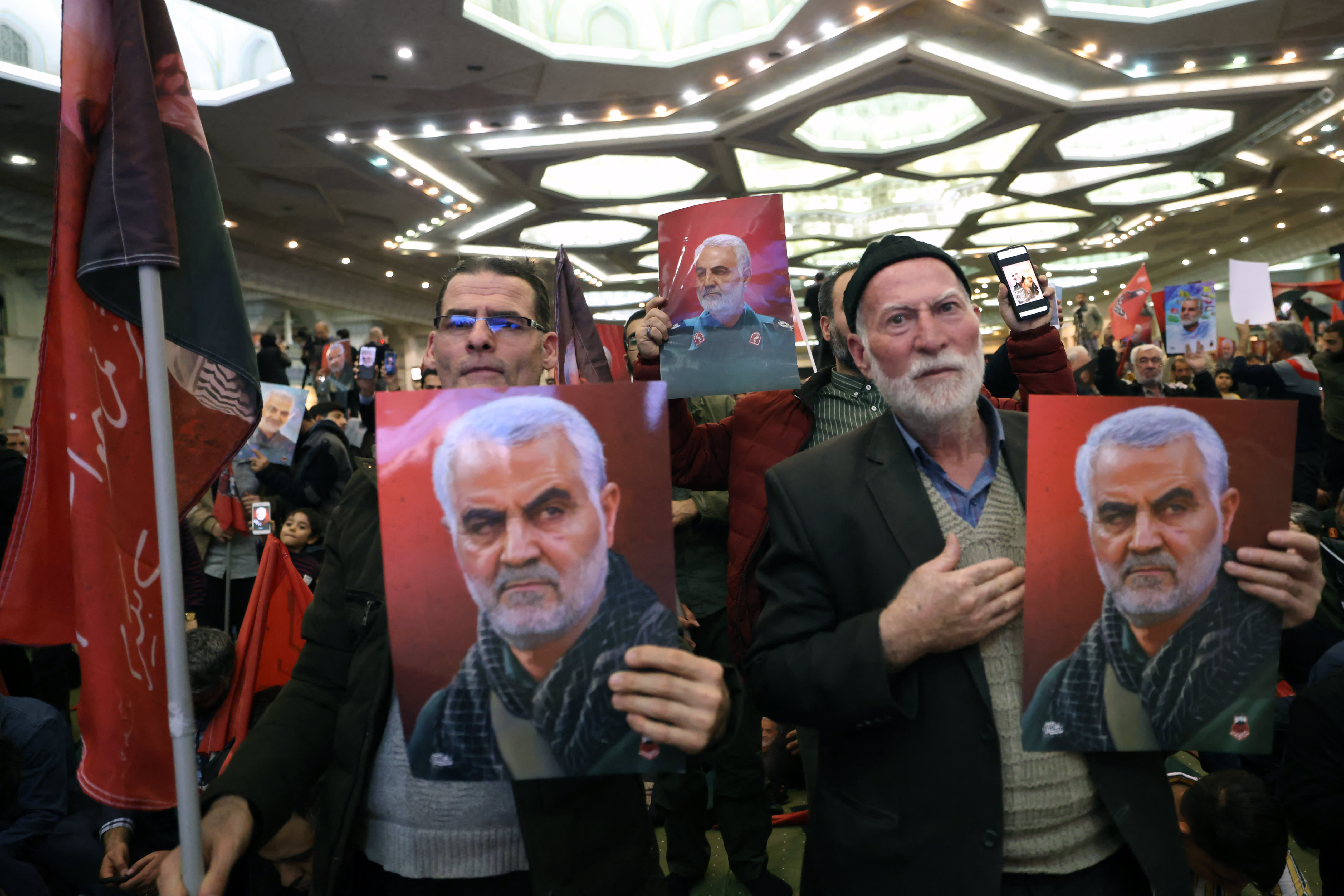
Deadly blasts that killed at least 84 people in southern Iran has added to growing international concerns about the prospect of a broader Middle East conflict.
The two explosions, which also injured more than 210 people in Kerman, targeted a memorial ceremony for Gen. Qassem Soleimani, a senior Iranian general killed in a 2020 U.S. drone strike. No party has claimed responsibility for the blast.
Meanwhile, a drone strike killed a senior Hamas leader in the Lebanese capital of Beirut on Tuesday and rebels in Yemen continue to attack commercial ships transiting the Red Sea, heightening fears that Israel’s nearly three-month-long war against Hamas could spread beyond Gaza.
Lebanon said Israel was responsible for Tuesday’s drone strike and accused it of trying to drag Beirut into a regional war. Israel has not claimed responsibility for the strike, while an advisor to Israeli Prime Minister Benjamin Netanyahu described it as a “surgical” hit on Hamas, rather than an attack on Lebanon.
Hassan Nasrallah, the leader of Hezbollah, warned in a speech Wednesday that if Israel stokes tensions with the Iranian-backed militant group, its fighters will react without “limits, rules and controls.”
Hezbollah, which operates both as a political party and paramilitary group in Lebanon, has exchanged near-daily cross-border fire with Israeli armed forces since Hamas’ deadly attack on Israel on Oct. 7. However, the violence has so far been contained to the Israel-Lebanon border.
Yossi Mekelberg, associate fellow of the Middle East and North Africa program at Chatham House, a British think tank, said Thursday that Nasrallah’s speech was “typical” in its mix of threats toward Israel and support for Palestinians, while also seeking to strike a “very cautious” tone.
“I think the message, all in all, that Hezbollah was not interested in a full-blown confrontation with Israel but at the same time the danger they are both sleepwalking into that,” Mekelberg told CNBC’s “Street Signs Europe.”
“And again, we need to ask ourselves, if Hezbollah is not interested in such a confrontation, [why] has it amassed 150,000 rockets and long-range missiles and sophisticated ammunition over the last decade and a half? This creates a situation which is explosive,” Mekelberg said.
“It is not only the message from Hezbollah itself but also from the paymaster in Tehran that there is no interest in a regional war. But, at the same time, there are steps or events that might dictate the next days and weeks.”
Elsewhere, an Iran-backed militia headquarters in Baghdad was hit by a drone strike on Thursday, NBC reported, citing a senior Iraqi security official who was briefed on the incident. Three people were confirmed to have been killed in the attack.
Red Sea attacks
Separately, in a letter co-signed by the U.S. and 12 of its allies, the White House on Wednesday issued a warning to the Houthis of Yemen, saying ongoing attacks against commercial vessels transiting the Red Sea were “illegal, unacceptable, and profoundly destabilizing.”
“Let our message now be clear: we call for the immediate end of these illegal attacks and release of unlawfully detained vessels and crews,” the White House said in a statement. The letter was also signed by the U.K., Canada, Australia, Japan, Italy, Germany, Denmark, Belgium, the Netherlands, New Zealand, Singapore and Bahrain.
“The Houthis will bear the responsibility of the consequences should they continue to threaten lives, the global economy, and free flow of commerce in the region’s critical waterways. We remain committed to the international rules-based order and are determined to hold malign actors accountable for unlawful seizures and attacks,” the joint statement added.
The U.S. says nearly 15% of global seaborne trade passes through the Red Sea, including 12% of seaborne-traded oil and 8% of the world’s liquified natural gas trade.
Oil prices rose roughly 1% on Thursday afternoon in London, extending gains from the previous session amid supply concerns and heightened tensions over the Israel-Hamas war.
Source: CNBC
